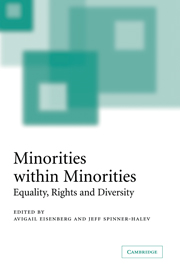2 - A liberalism of conscience
Published online by Cambridge University Press: 22 September 2009
Summary
Quae tibi laeta videntur dum loqueris, fieri tristia posse puta.
Ovid, Ex Ponto, 4.3.57–8Despite their steps forward with respect to toleration, stability and legitimacy, the liberal democracies of the new millennium have inherited unresolved and what appear to be ultimately irresolvable religious differences. The world's great democracies contain within them a wide variety of comprehensive doctrines, religious and otherwise. Not all of these doctrines derive from a Christian fount: democracies are increasingly multicultural places, featuring wide racial and ethnic diversity, and legions of religious communities representing every major religious tradition. The condition of permanence attached to this array of comprehensive doctrines prompts some writers to suggest, quite rightly, that there is a “fact of pluralism as such,” in the sense that pluralism of this kind exists at present and is not likely to disappear at any time in the foreseeable future (Rawls 1996: 36–8). As John Rawls remarks, notwithstanding the efforts of those who have toiled in vain to unite, coalesce or eradicate religious doctrines, “the fact of religious division remains” (1996: xxvi).
Religious divisions in contemporary liberal societies are not only permanent and profound; they also exist between liberal and non- or anti-liberal religious devotees. For among the people who support the array of doctrines that simple pluralism implies are theocrats, those persons who affirm theocratic conceptions of the good.
- Type
- Chapter
- Information
- Minorities within MinoritiesEquality, Rights and Diversity, pp. 41 - 64Publisher: Cambridge University PressPrint publication year: 2005

